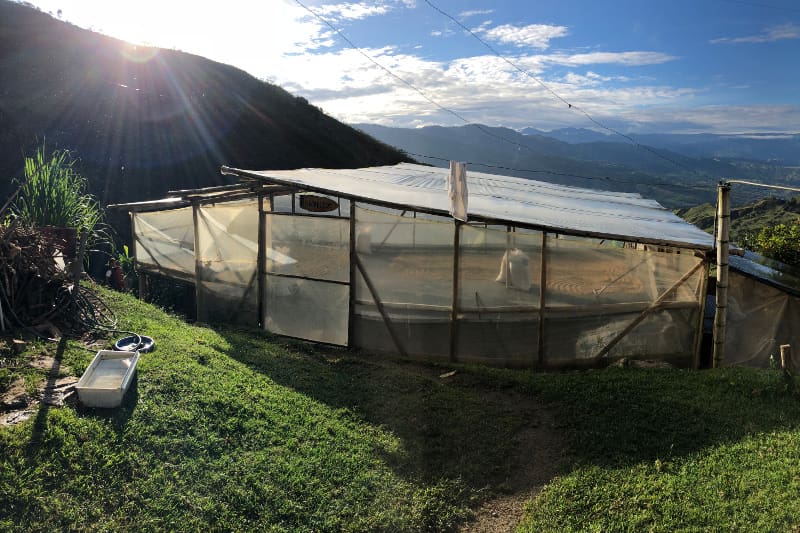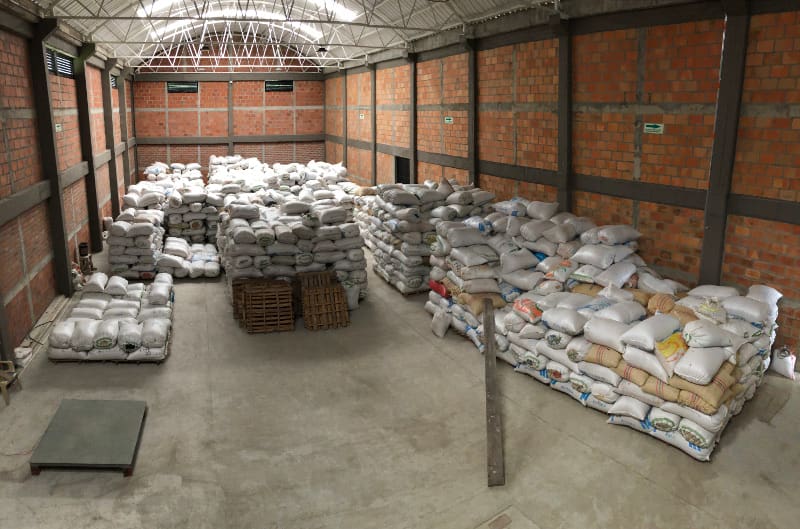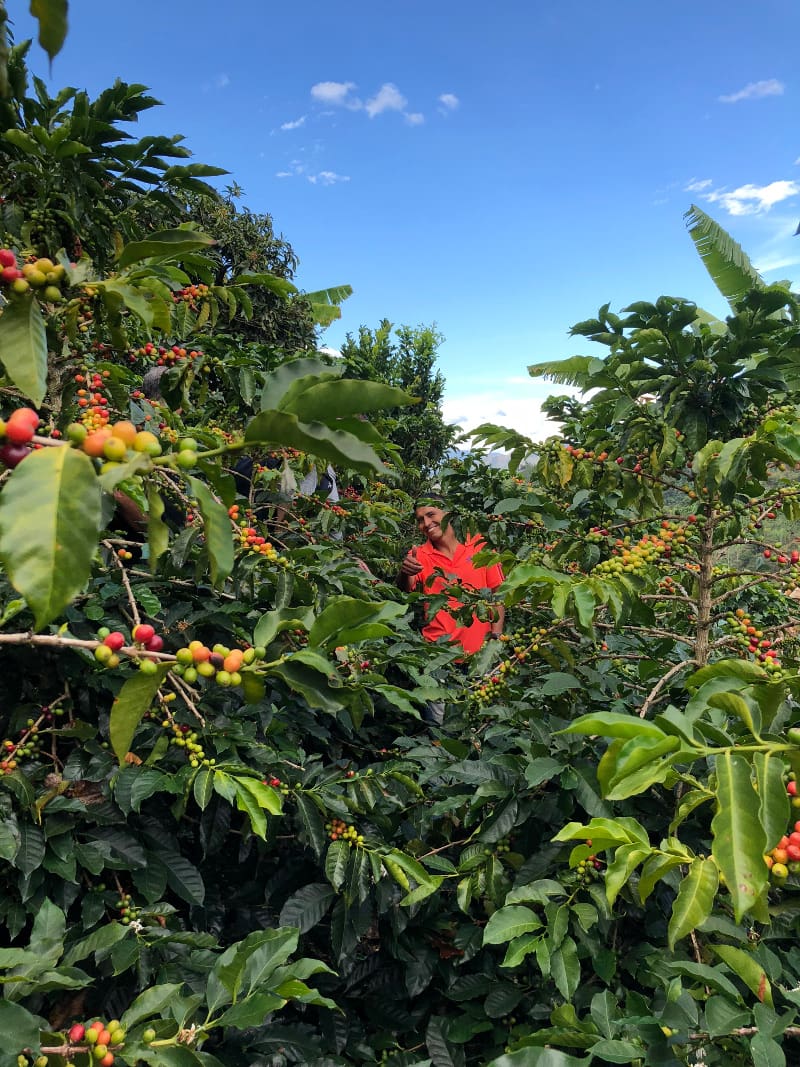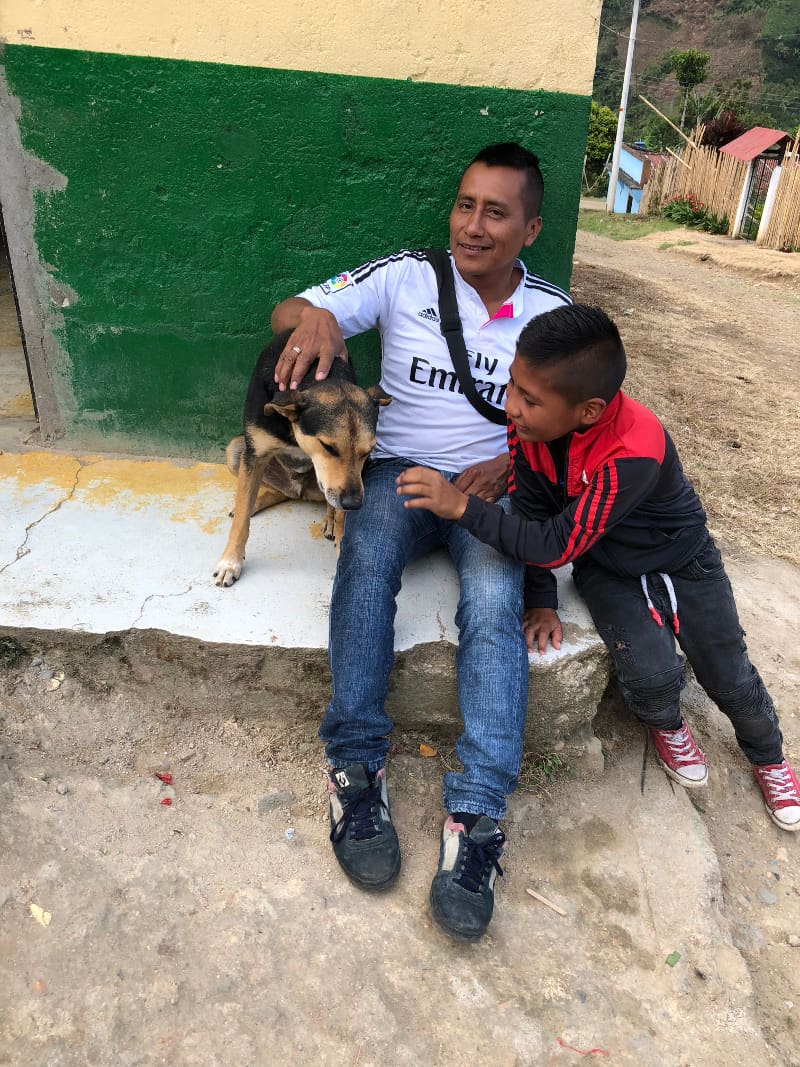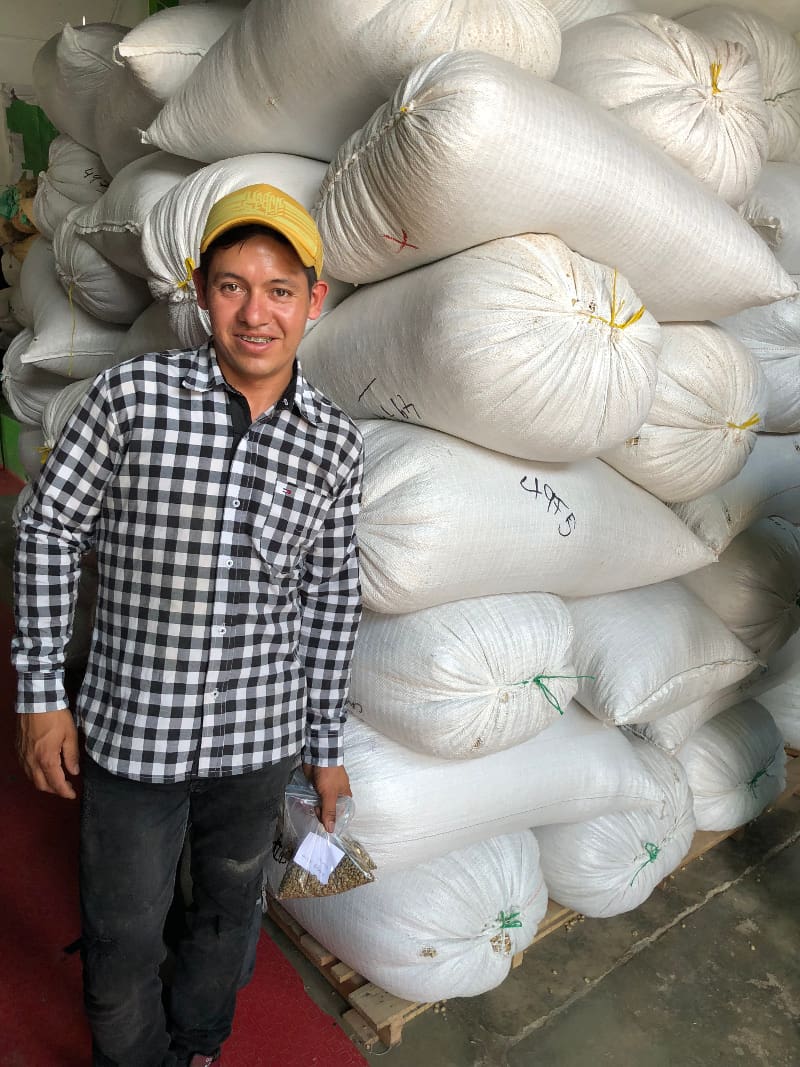Our autumn visit to Colombia is one of the highlights of our travel year and centers around our annual “Lo Mejor de Monserrate” micro-lot competition. Early October is a terrific time to cup coffees from what is the main crop in many areas of southern Huila, and there is usually a fair amount of harvesting and processing to be seen as well. While in Huila we always look forward to spending a few days in the town of Timaná with another one of our closest producer partners, ASPROTimaná. Connecting with ASOPEP in the town of Planadas situated in the neighboring department of Tolima has also become a regular feature of this itinerary. We covered a lot of ground in 10 days and somehow still didn’t have enough time to hear about all the exciting projects underway with these three groups.
ASPROTimaná is an association of small scale producers in the municipality of Timaná, department of Huila. The group was formed in 2001 by 38 producers who at that time were suffering from low coffee prices and sought a better quality of life for themselves and their families. From those humble beginnings, ASPROTimaná has grown into a thriving association of 850 members.
This year, General Manager Robinson Figueroa was an amazing host for our group once again. We visited member farms and cupped delicious coffees that demonstrated the impressive complexity and broad range of profiles the group has to offer. ASPROTimaná works side-by-side with its members and provides them with best farming practices, technical assistance, and access to educational programs. Each farmer is provided the resources they need to produce excellent coffee. It was inspiring to see the obvious dedication to quality at each of the farms that we visited.
Atlas has been working with ASPROTimaná since 2011 and it’s been wonderful to see the tremendous growth and progress the group has made over the years. Each time we return, we see a newly completed project and ambitious new initiatives underway. This year we learned that the group is planning on building a milling area for micro-lots, a centralized wet mill and is also working towards a certified cupping lab.
Understanding that youth involvement is critical to its long-term sustainability, the cooperative has started a new program for young people ages 7 to 18 to teach them cupping, quality control and barista skills. An experimental farm for young people in the community is also in the works. It’s incredible to see what ASPROTimaná has accomplished over the years, and as the group prospers, so do the relationships between our roaster clients and individual farmers.
After a few days in Timaná we moved up to the bustling commercial center of La Plata. Our first full day was spent cupping the 58 samples from the producers participating in our 9th Annual “Lo Mejor de Monserrate” micro-lot competition. The competition has been an incredible quality-discovery mechanism and has fostered dozens of producer-roaster relationships over the years. The farm of the 2018 1st place winner Señor Luis Cuchimba is a marvelous example of how amazing coffee can come from seemingly basic conditions. Most of the farm is above 1,900 masl and even mature trees can remain relatively short, spindly and thin. Fermentation can often take over 48 hours due to the cool temperatures, and sun-drying can take over three weeks even in a solar dryer. Despite appearances and challenging conditions, the coffee from this farm blew away our 10 judges on the cupping table. Painstaking care with the farm management and processing is evident in Luis’ 1st place lot and his success is an impressive model for his neighbors.
The PROAGROMIL association of Monserrate farmers is sponsoring early adoption of some new technologies for treating wastewater from fermentation washing. The “Manos al Agua” program is a country-wide campaign directed by the National Coffee Federation (FNC) to reduce the environmental impact of coffee processing and preserve natural resources. Coffee farmers receive subsidies from the FNC to install a three-stage water filtration system to treat their aguasmieles or “honey water,” which can be very harmful to freshwater ecology. The filters incorporate holding tanks (around 100 gallons each) and the addition of microorganisms that break down the fermented byproducts into harmless solids, which can then be filtered from the water using layers of sand and charcoal. The system is an easy and affordable way to ensure that the byproducts of coffee processing are rendered inert before being reintroduced into the environment.
After bidding a fond farewell to our friends in Monserrate we pressed on to Planadas, Tolima for our final visit of the trip. Asociación de Productores Ecológicas de Planadas (ASOPEP) is a flourishing cooperative of Fairtrade coffee and cocoa founded in the town of Planadas in the southern part of the department of Tolima. Situated in the heart of the Cordillera Central mountain range, the area can best be described as a natural paradise where high elevation farms are found throughout the cloud forests surrounding the town.
It’s hard to imagine that only 5 years ago, this area was considered off limits. As the de-facto home base of the FARC (Revolutionary Armed Forces of Colombia), a Marxist paramilitary group founded in Planadas more than 50 years ago, the town was considered far too dangerous to visit for decades. Government helicopters flying overhead and bombs dropped in the surrounding mountainside were daily occurrences. The government finalized a peace agreement with the FARC in 2016 and since then, Planadas has been rebuilding. Specialty coffee has been the main driving force in that effort. Today, with 5,900 coffee producing families Planadas is the third largest coffee producing municipality in Tolima.
With excellent leadership, ideal growing conditions, a dedication to quality and the wise use of their Fairtrade premiums, ASOPEP has grown by leaps and bounds in only a few short years. With the use of their Fairtrade premiums and investment of NGO’s, the group has recently purchased an 8-hectare plot of land where they have begun building raised beds for sun-drying coffee and cacao as well as an office and fermentation area for their growing cocoa business. On the same property they’re building a new school to teach young people cupping, quality control and barista skills, a coffee shop and temporary living quarters for all 250 of its coffee and cocoa growing members.
The frames of the structures are built using a strong type of bamboo which is native to the area. ASOPEP started a training program for ex-FARC combatants to teach them how to build these structures thus giving them valuable and marketable training they can then use to find jobs. For their efforts, ASOPEP won the “Emprender Paz” (creation of peace) prize awarded by the government of Colombia.
Our visit left us encouraged about the exceptional progress the group is making and we can’t wait to return next year and see all that ASOPEP has accomplished.
